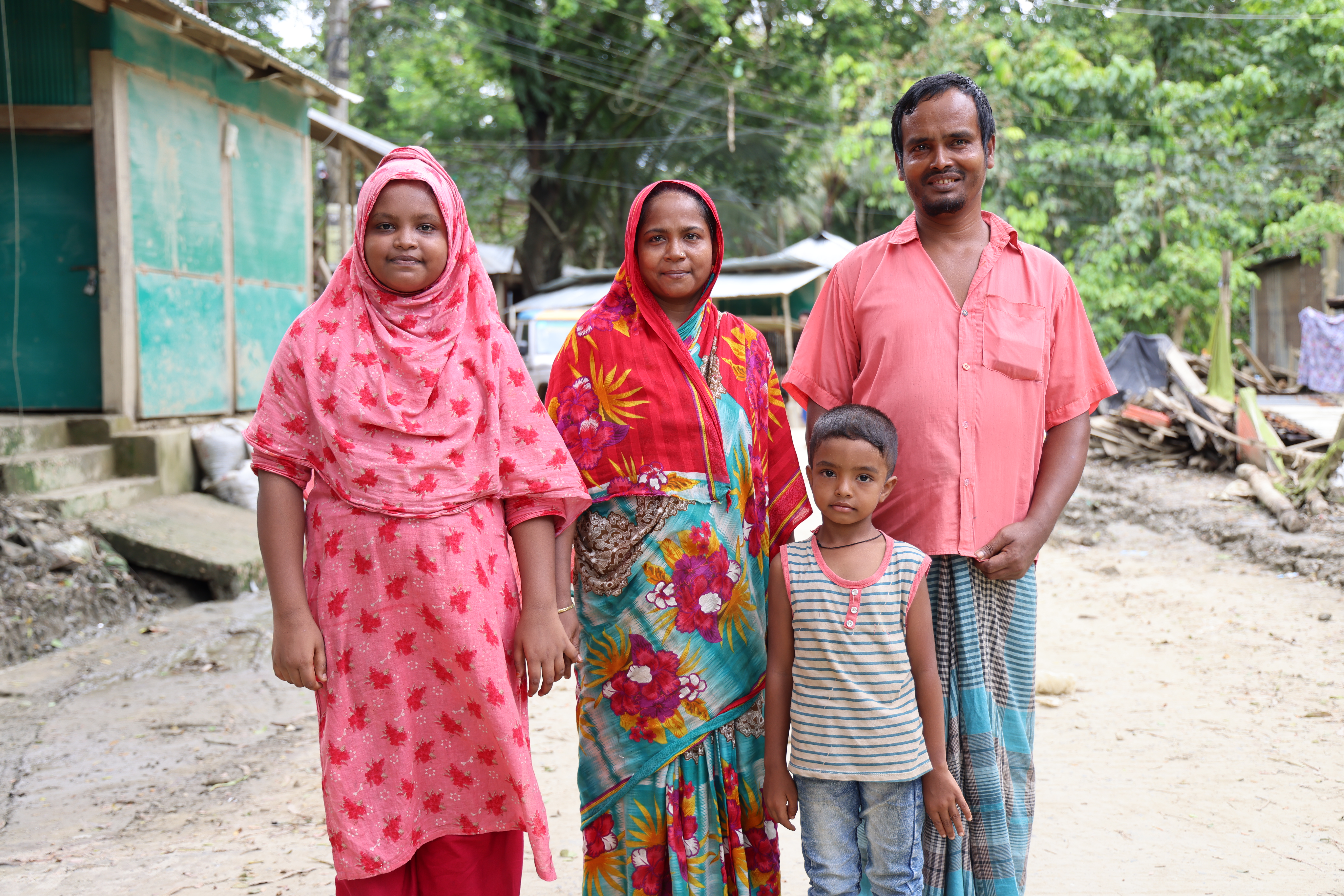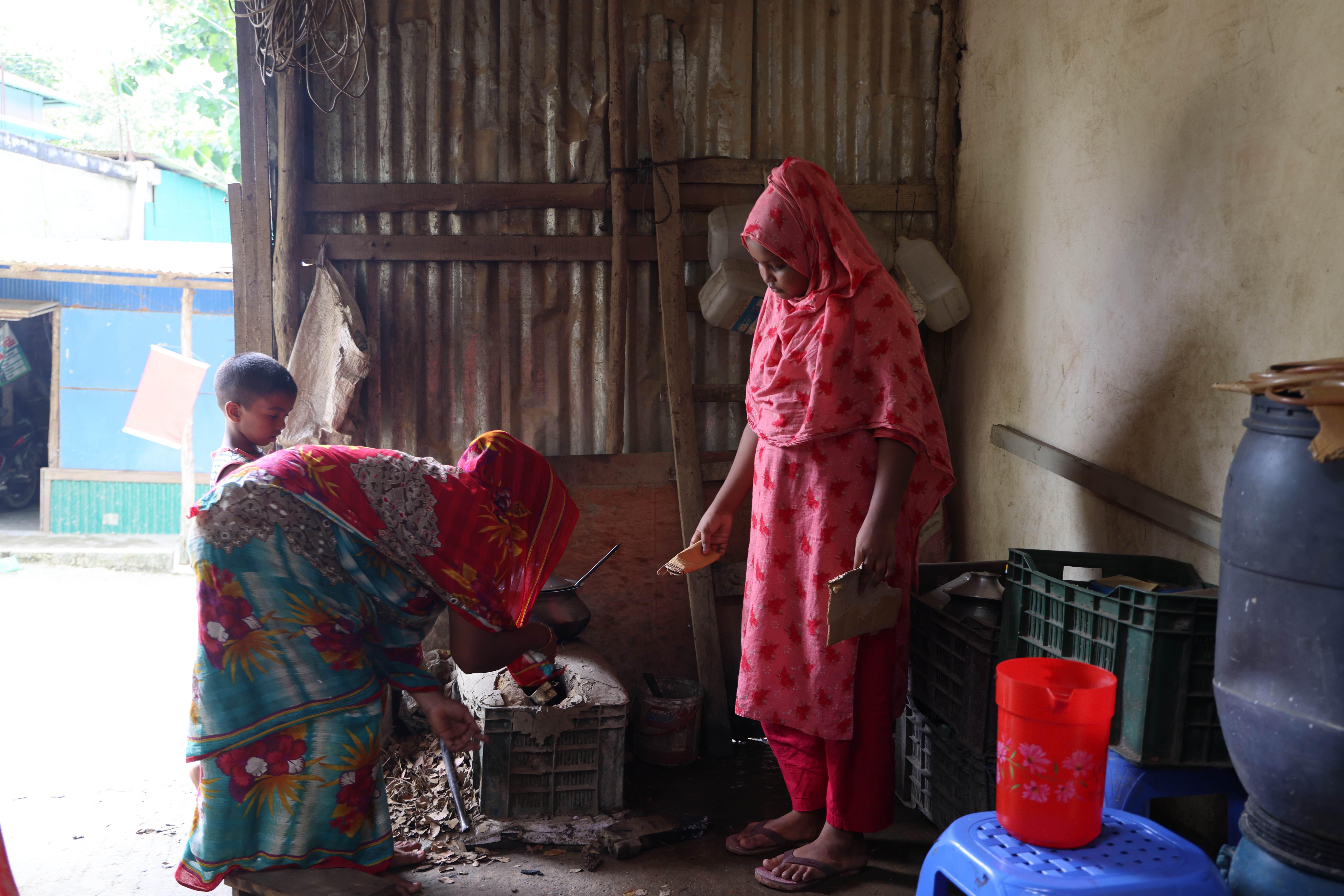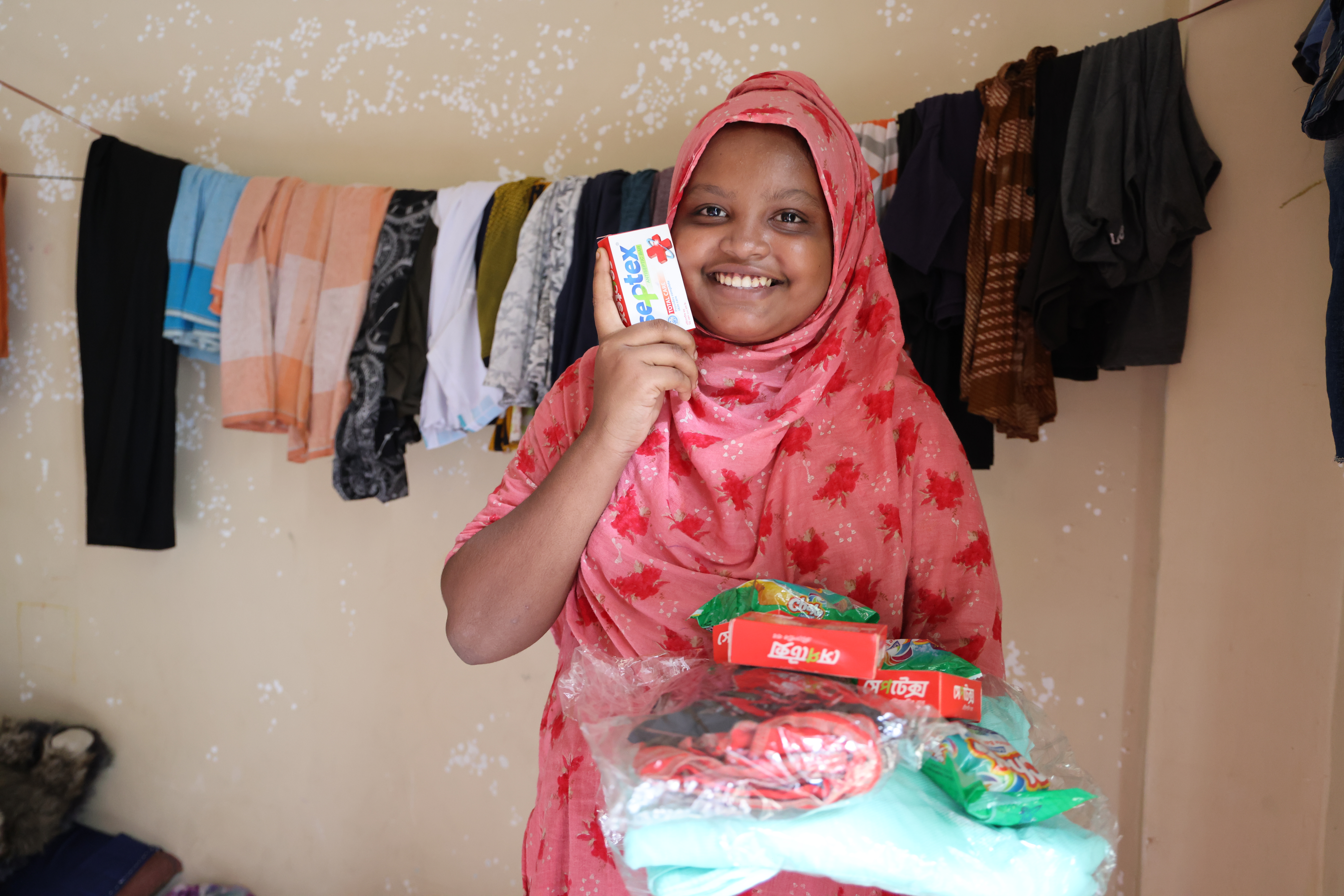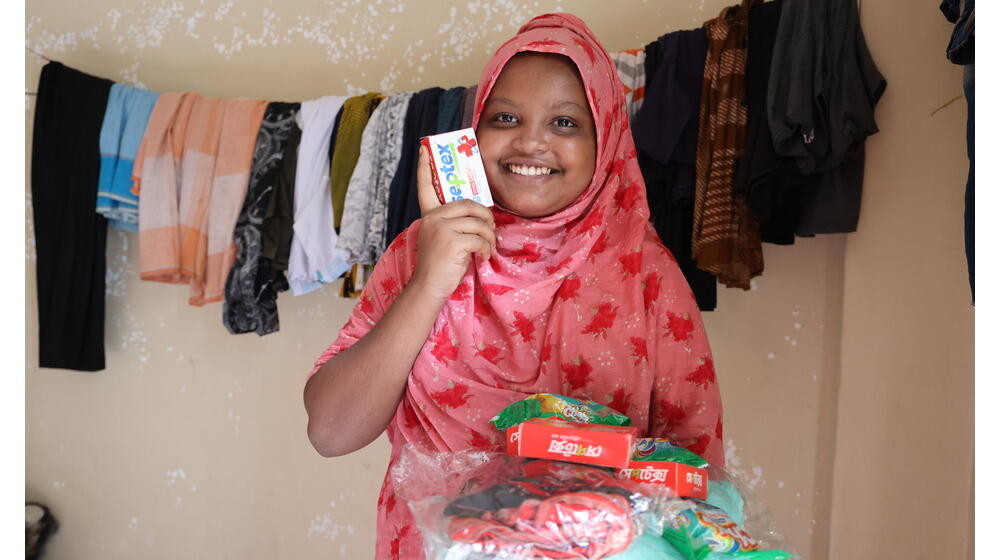Bebi Akhtar, 39, a resident of Bandarban, once enjoyed a simple yet content life with her family. Her husband worked as a daily laborer while she ran a modest tea stall in front of their home. They had three children - a daughter and two sons, and their life was a source of happiness. However, in August, a catastrophic flash flood altered the course of their lives.
Bebi's voice trembles as she points to the barren land, where once stood their home. She recalls,
"Our house was here, filled with belongings and necessities. Right in front of the house, I had a small tea stall, which helped me contribute to the family. My husband worked daily, and on off-days, he pedaled a rickshaw. Our three children were all attending school. We were happy with what we had. But now, everything is gone, and there's not enough money to rebuild our home."

Photo: UNFPA Bangladesh/Alka Ferdous
Their home was situated near a canal and a bridge, which became a nightmare during heavy rainfall. The constant threat of landslides, relentless monsoons, and an overflowing canal forced the entire community to seek refuge in a nearby primary school. Here, they endured nights of raging storms, devoid of electricity, proper sustenance, and sanitary conditions.
Bebi's eyes fill with concern as she shares,
"I have an adolescent daughter. I am worried endlessly about her safety. In the school shelter, we lived among strangers, and an unrelenting fear consumed me. I could hardly sleep at night, watching over my daughter. I had never experienced a challenging time like this.”
Bebi's family of five found themselves in a crowded room, sharing their space with fifty other community people. In the absence of electricity, they relied on candles to brighten their nights. They faced considerable challenges in accessing basic necessities such as toilets, clean water, sanitation, and food, with their diet often reduced to a meager portion of rice.
After a week, the family found temporary shelter in a nearby house. Bebi's daughter, Sumaiya, hasn't been able to return to school since the flash flood. Her books were either lost or destroyed. Sometimes, on her way to school, boys pass comments on Sumaiya, making her feel uncomfortable to go to school. She spends most of her days at home, her spirits dampened. Living in this new area, Bebi is constantly ensuring her daughters safety.

Photo: UNFPA Bangladesh/Alka Ferdous
Sumaiya usually helps her mother with cooking and taking care of the house. The aftermath of the flash flood increased the crisis in the job market, leaving Bebi’s husband and son struggling to find work. Sometimes, they take on daily labor jobs to make ends meet.
"We've faced mental, financial, and physical struggles, but we're still standing. We have nothing but we are hopeful for better days to come - my children going to school with heads high, my husband going to work, and I am running my small tea stall.”

Photo: UNFPA Bangladesh/Alka Ferdous
Natural disasters exacerbate pre-existing vulnerabilities, especially for women and girls. With support from the Australian Government, UNFPA distributed life-saving kits and essential supplies. Sumaiya received a dignity kit from our dedicated volunteers who were on the frontlines addressing the needs of the affected population. The kit included a flashlight, soap, comb, brush, a bucket, and informational service cards. The volunteers also provided counseling services, strengthening and making them aware of Gender Based Violence services.
In the face of this adversity, Bebi Akhtar's unwavering determination and hope are a reminder that even amidst the darkest times, the human spirit can rise above and prevail. Her story reflects not only the challenges but also the strength and resilience of individuals in Bandarban.


